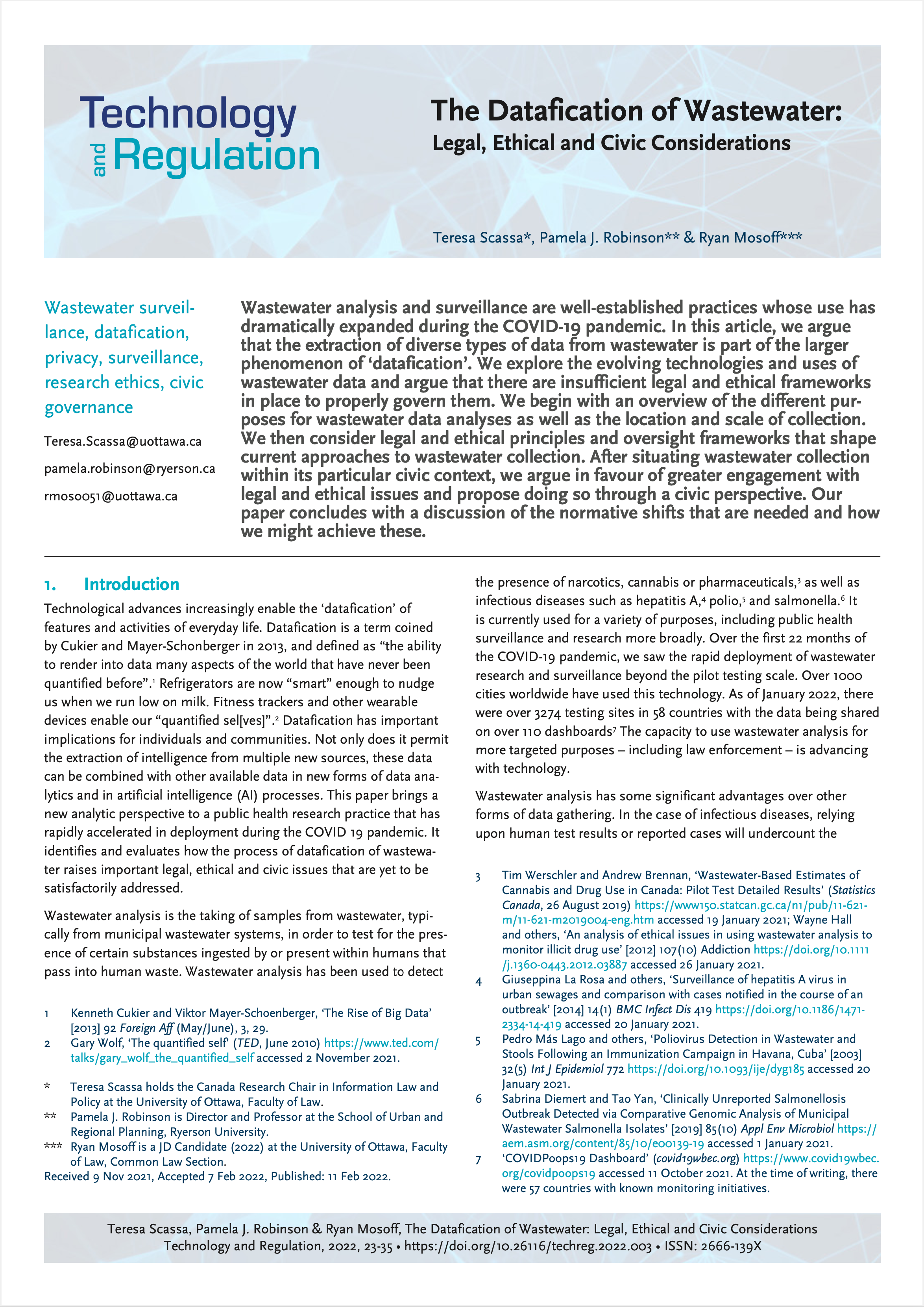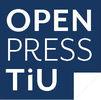The Datafication of Wastewater:
Legal, Ethical and Civic Considerations
DOI:
https://doi.org/10.26116/techreg.2022.003Keywords:
Wastewater surveillance, datafication, privacy, research ethics, civic governance, surveillanceAbstract
Wastewater analysis and surveillance are well-established practices whose use has dramatically expanded during the COVID-19 pandemic. In this article, we argue that the extraction of diverse types of data from wastewater is part of the larger phenomenon of ‘datafication’. We explore the evolving technologies and uses of wastewater data and argue that there are insufficient legal and ethical frameworks in place to properly govern them. We begin with an overview of the different pur- poses for wastewater data analyses as well as the location and scale of collection. We then consider legal and ethical principles and oversight frameworks that shape current approaches to wastewater collection. After situating wastewater collection within its particular civic context, we argue in favour of greater engagement with legal and ethical issues and propose doing so through a civic perspective. Our paper concludes with a discussion of the normative shifts that are needed and how we might achieve these.
Downloads

Downloads
Published
Issue
Section
License
Copyright (c) 2022 Teresa Scassa, Pamela Robinson, Ryan Mosoff

This work is licensed under a Creative Commons Attribution-NonCommercial-NoDerivatives 4.0 International License.
Submissions are published under a Creative Commons BY-NC-ND license.’


